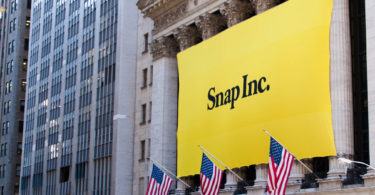When Berkshire Hathaway (NYSE:BRK.A)(NYSE:BRK.B) CEO Warren Buffett buys or sells stock, Wall Street and investors pay close attention. That's because the Oracle of Omaha, as he's come to be known, has an incredible moneymaking track record over the past 57 years.
Since taking over as CEO in 1965, Buffett has overseen more than $710 billion in value creation for Berkshire's shareholders, along with an aggregate increase of 3,945,688% for the company's Class A shares (BRK.A), through this past weekend. Even though Berkshire Hathaway doesn't outpace the benchmark S&P 500 every year, the average annual return of 20.1% for Berkshire's Class A shares since 1965 nearly doubles up the average annual total return (10.5%), including dividends, for the S&P 500 over the same stretch.
In other words, riding Buffett's coattails is usually a very successful strategy for patient investors — and it could be an even more fruitful venture with the ongoing stock market pullback.
In particular, the following trio of Warren Buffett stocks can be confidently bought hand over fist in March.
Bank of America
The first Buffett stock investors can pile into in March is money-center giant Bank of America (NYSE:BAC). BofA is Berkshire Hathaway's second-largest holding by market value ($42.3 billion, as of last weekend).
Though bank stocks were virtually unstoppable in 2021, they've cooled considerably in recent weeks. The economic uncertainties tied to the Russia-Ukraine war, coupled with the prospect of rapidly rising inflation threatening domestic growth, have investors on edge.
The important thing to remember with bank stocks is that they're highly cyclical and often prepared for downturns in the U.S. and global economy. Even Buffett is fully aware that recessions are an inevitable part of the economic cycle. But the Oracle of Omaha also knows that periods of expansion last considerably longer than recessions. This allows bank stocks like BofA to spend a disproportionately longer amount of time reaping the rewards of an expanding economy.
Another intriguing aspect of Bank of America is its interest rate sensitivity. Among money-center banks, none would see their net interest income vacillate more from interest rate yield curve movements than BofA. With U.S. inflation hitting a 40-year high in January, and the Federal Reserve signaling that it'll begin raising interest rates, Bank of America appears set for a windfall of added interest income on its outstanding variable-rate loans.
According to the company's fourth-quarter operating results, a 100-basis-point parallel shift in the interest rate yield curve would add an estimated $6.5 billion in net interest income. At the moment, at least four 25-basis-point hikes are expected by Wall Street over the next 12 months (100 basis points).
Bank of America also deserves credit for its digitization efforts. Let's face it, when you think of digital banking, BofA probably isn't the first company to come to mind. Yet, the company ended 2021 with 41 million monthly active digital banking customers and saw 49% of all sales completed digitally in the fourth quarter. That's up from 31% in the comparable quarter three years ago.
Recent market fears surrounding the banking industry are overblown, especially when it comes to Bank of America.
“Forever Battery” Stock Surges
Secret startup cracks the battery code —
One little-known company holds 200 patents on new technology set to grow EV sales 1,500%.
Now is the time to invest in the battery tech that experts predict could power every single EV on the planet…
General Motors
The second Warren Buffett stock to buy hand over fist in March is Detroit auto legend General Motors (NYSE:GM).
Over the trailing two months since hitting an all-time intra-day high, shares of GM have shed 37% of their value. While inflation is one of the concerns weighing on shares of the company, the ongoing global semiconductor chip shortage may be the bigger issue. Rival Ford Motor Company announced in February that production at eight of its assembly plants would be temporarily halted due to the semiconductor shortage. Since this is an industrywide problem, GM is unlikely to be immune.
However, focusing too much on short-term supply issues would be regrettable, because you'd miss out on GM's massive long-term catalyst: The electrification of consumer vehicles and enterprise fleets.
General Motors is investing heavily in an electrified future. Last year, the company upped its commitment to spend $35 billion through 2025 on electric vehicles (EVs), autonomous vehicles, and battery research/facilities. This hefty investment will result in two exclusive battery facilities coming online by 2023 and the company rolling out 30 EVs globally by mid-decade. Per CEO Mary Barra, the company should have the capacity to produce more than 1 million EVs annually in North America by the end of 2025, with around 600,000 units being EV trucks produced at its Orion Township, Michigan plant.
This focus on truck production is smart and strategic. Trucks produce the best margins, relative to sedans. Furthermore, with prices at the pump soaring, truck owners are liable to feel the sting more than people driving sedans, and may be more willing to make the switch to electric. It's also worth pointing out that GM secured more than 110,000 initial deposits of $100 to reserve the newly unveiled Chevy Silverado EV.
General Motors has ample opportunity to secure significant market share in China as well. In each of the past two years, GM has delivered 2.9 million vehicles (mostly combustion-engine vehicles) in China, the world's No. 1 auto market.
Even if GM's 2022 profit forecast were to come down modestly to account for chip shortages (say 10% to 15%), shares can be scooped up for about seven times expected earnings in 2022. That's still quite inexpensive considering the growth opportunity on the company's doorstep.
Mastercard
The third and final Warren Buffett stock investors can confidently buy hand over fist in March is payment processor Mastercard (NYSE:MA).
Mastercard has found itself under pressure in recent weeks due to the Russia-Ukraine war. Specifically, Mastercard generated about 4% of its net revenue from Russia and approximately 2% from Ukraine in 2021, according to recent filings. With Mastercard blocking certain Russian financial institutions from accessing its payment network, and there being no clarity as to when this conflict will be resolved, investors have taken a “sell now, ask questions later” approach.
While uncertainty is never Wall Street's friend, there are plenty of reasons to be optimistic about Mastercard's future, even if these uncertainties persist.
Like Bank of America and other financial stocks, Mastercard is a cyclical company. It does well when the global economy is expanding and people/businesses are spending, and it struggles a bit when recessions hit and spending declines. If anything, it's a very predictable operating model. Since economic expansions are measured in years, as opposed to a couple of months or quarters with recessions, long-term investors can play a numbers game that works very much in their favor.
Mastercard also makes for a smart buy due to its lending avoidance. This is a company that purely sticks to payment processing. You might be scratching your head and wondering why a brand-name business that enjoys long periods of economic expansion wouldn't lend money to generate interest income and fees. The simple answer is that Mastercard's management team understands the inevitability of recessions and economic contractions. Since it doesn't lend, it doesn't have to set aside capital if and when loan losses arise. This allows it to rebound faster than most financial stocks.
If you need one more reason to buy Mastercard stock, consider this: Even if approximately 4% to 6% of its net revenue is at risk, sales for the company are forecast to grow 19% this year and 17% next year. In other words, Mastercard would still be churning out double-digit sales growth globally.
Should you invest $1,000 in Bank of America Corporation right now?
Before you consider Bank of America Corporation, you'll want to hear this…
Exclusive: “I'm investing $100K in this” – Daymond John
My name is Daymond John, and if you've seen me on television, then you know why I'm called “The People's Shark.”
I grew up in Queens, New York, where I launched my startup in my mother's basement with $40.
I worked 80 hours a week, seven days a week. Every time I failed, I got up, dusted myself off, and kept moving forward. Nothing was handed to me, and nothing could stop me either.
I grew my startup into a $6 billion fashion empire. But I couldn't have done it without my first angel investor (my mother).
Now, it's time to pay it forward.
I'm launching a mission to discover our next generation of American visionaries before the world knows them by one name – like “Bezos, Jobs, or Gates.”
And I'm recruiting you to join me.
Let's back a new class of innovators at the beginning of their stories, and maybe you'll become a part of history.
From Thomas Edison and Alexander Graham Bell to the Wright Brothers… all the way to modern times, our greatest visionaries have always relied on their “unsung heroes” – their angel investors – to help them fulfill their destinies.
Right now, brilliant entrepreneurs are building startups in dorm rooms, garages, laboratories, and factories across our country.
I'm personally investing $100,000 into their small businesses.
I've called in every favor to enlist some of the earliest angels in Airbnb, 23andMe, Coinbase, DraftKings, Palantir, and Spotify. We're all teaming up.
The reward for joining us could be generational wealth.
For instance, in 2004, Tesla – the startup – was worth just $7.29 million.
Last November, Tesla – the stock – was worth $1.23 trillion.
That's exponential growth of 16,940,915% since Elon Musk's first angels got the chance to bet on him.
Just as important, Tesla provides over 70,000 people with jobs.
And I believe history is about to repeat itself. We've already identified two startups that will launch our mission.
Are you in?










